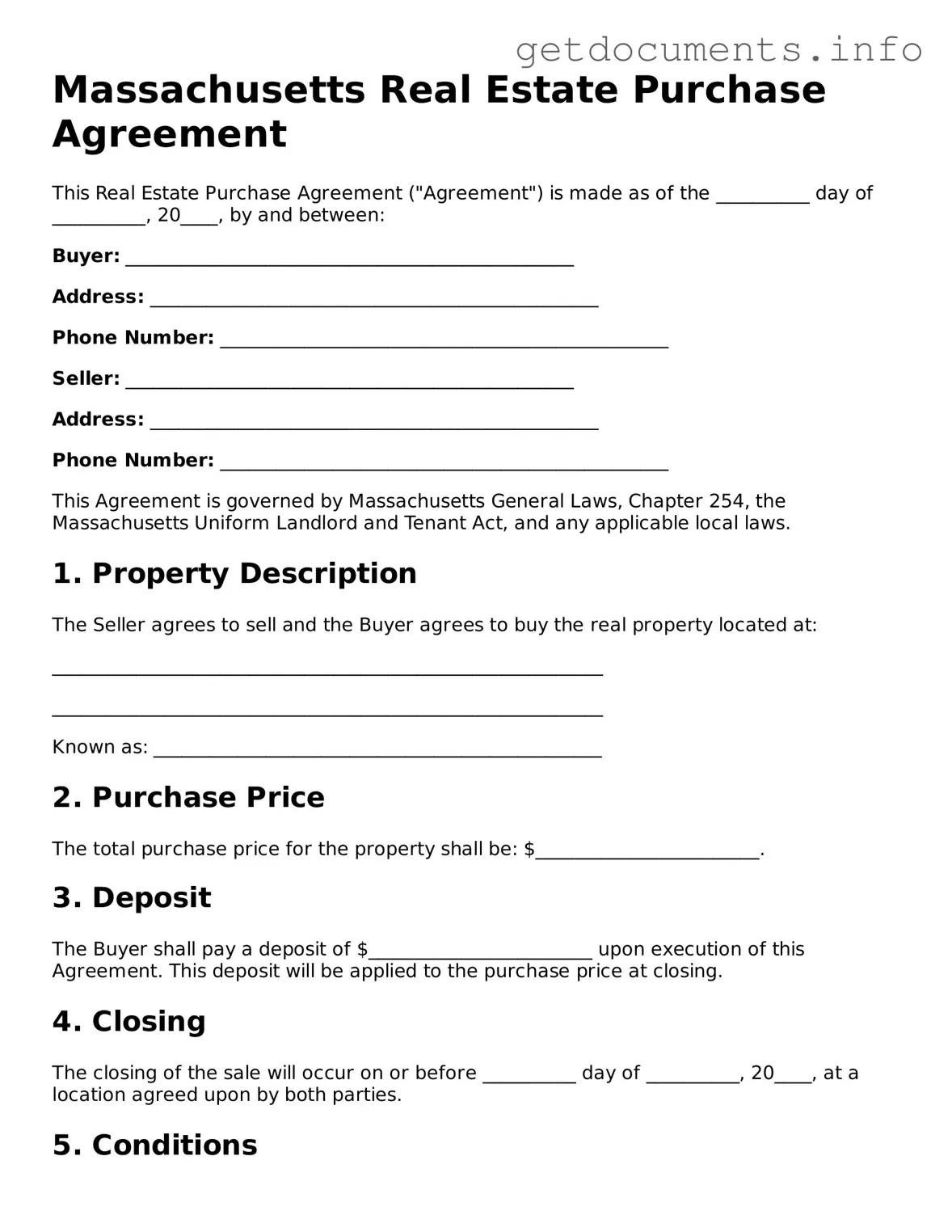Free Real Estate Purchase Agreement Template for Massachusetts
The Massachusetts Real Estate Purchase Agreement is a legal document that outlines the terms and conditions for buying or selling real estate in Massachusetts. This form serves to protect both the buyer and seller by clearly stating their rights and obligations. Understanding this agreement is crucial for a smooth transaction, so take the first step by filling out the form below.
Access Real Estate Purchase Agreement Editor

Free Real Estate Purchase Agreement Template for Massachusetts
Access Real Estate Purchase Agreement Editor
Got places to be? Complete the form fast
Fill out Real Estate Purchase Agreement online and avoid printing or scanning.
Access Real Estate Purchase Agreement Editor
or
⇩ PDF File
